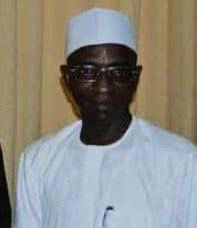Reply to the Chairman, Presidential Fiscal Policy & Tax Reforms Committee, by Hassan Ahmad
Dear Chairman,
I sincerely thank you for the clarification note issued on the subject of the 5% fuel surcharge. Your detailed explanation has provided important insight into the history, intent, and application of the provision under the Federal Roads Maintenance Agency (Amendment) Act 2007 and its restatement in the new Tax Act.
As one who has served Nigeria faithfully in the field of taxation for more than three decades, I fully appreciate the importance of harmonisation, transparency, and the need for a forward-looking legal framework. Indeed, it is clear from your note that this surcharge is neither a new creation of the present administration nor a policy intended for immediate implementation without due consideration of prevailing economic conditions. That said, permit me to raise a few reflections which, in my humble view, could enrich the ongoing conversation:
1. Timing and Socioeconomic Realities
While the provision has its merits, the social climate of today is very fragile. Citizens are grappling with high inflation, low purchasing power, and rising poverty. Even when a tax or levy is not new, restating it in today’s context can easily fuel public anxiety, misunderstanding, and mistrust. Clear sequencing and communication, therefore, become critical.
READ ALSO: Nigeria at the Crossroads: Politics, insecurity, and the road to 2027, by Hassan Ahmad
2. Equity and Fair Burden Sharing
The principles of taxation must be rooted in fairness. In this regard, care should be taken to ensure that such levies do not disproportionately affect the poorest and most vulnerable, who are already bearing the brunt of economic reforms.
Mechanisms such as targeted exemptions, social cushioning, or phased application could help balance the need for revenue with social justice.
3. Transparency and Earmarking
One major concern among citizens is the credibility of earmarked funds. Nigerians often ask: Where do such levies actually go? It may help to strengthen public trust by ensuring that proceeds from the surcharge are transparently managed, with regular reporting on how much is collected and how it is applied to road maintenance and related infrastructure. This will not only legitimise the levy but also build accountability.
4. Holistic Fiscal Reforms
The issue of the fuel surcharge cannot be divorced from the broader agenda of fiscal reform. For reforms to gain acceptance, they must be seen as comprehensive, equitable, and accompanied by visible improvements in governance and service delivery. Nigerians must feel that every naira collected is meaningfully returned in the form of development, security, and welfare.
In conclusion, I commend the Committee for its openness in engaging the public and clarifying sensitive matters such as this. Such dialogue is the essence of democratic governance and fiscal responsibility. I believe that with patience, sequencing, and fairness, this reform can be implemented in a manner that strengthens both our revenue base and the trust of citizens in government.
With highest regards,
Hassan Ahmad writes from Wuse Zone 6, Abuja.
Disclaimer
The opinions and views expressed in this article belong solely to the original author and other contributors. They do not necessarily reflect the official policy or opinions of Neptune Prime.
Follow the Neptune Prime channel on WhatsApp:
Do you have breaking news, interview request, opinion, suggestion, or want your event covered? Email us at neptuneprime2233@gmail.com





